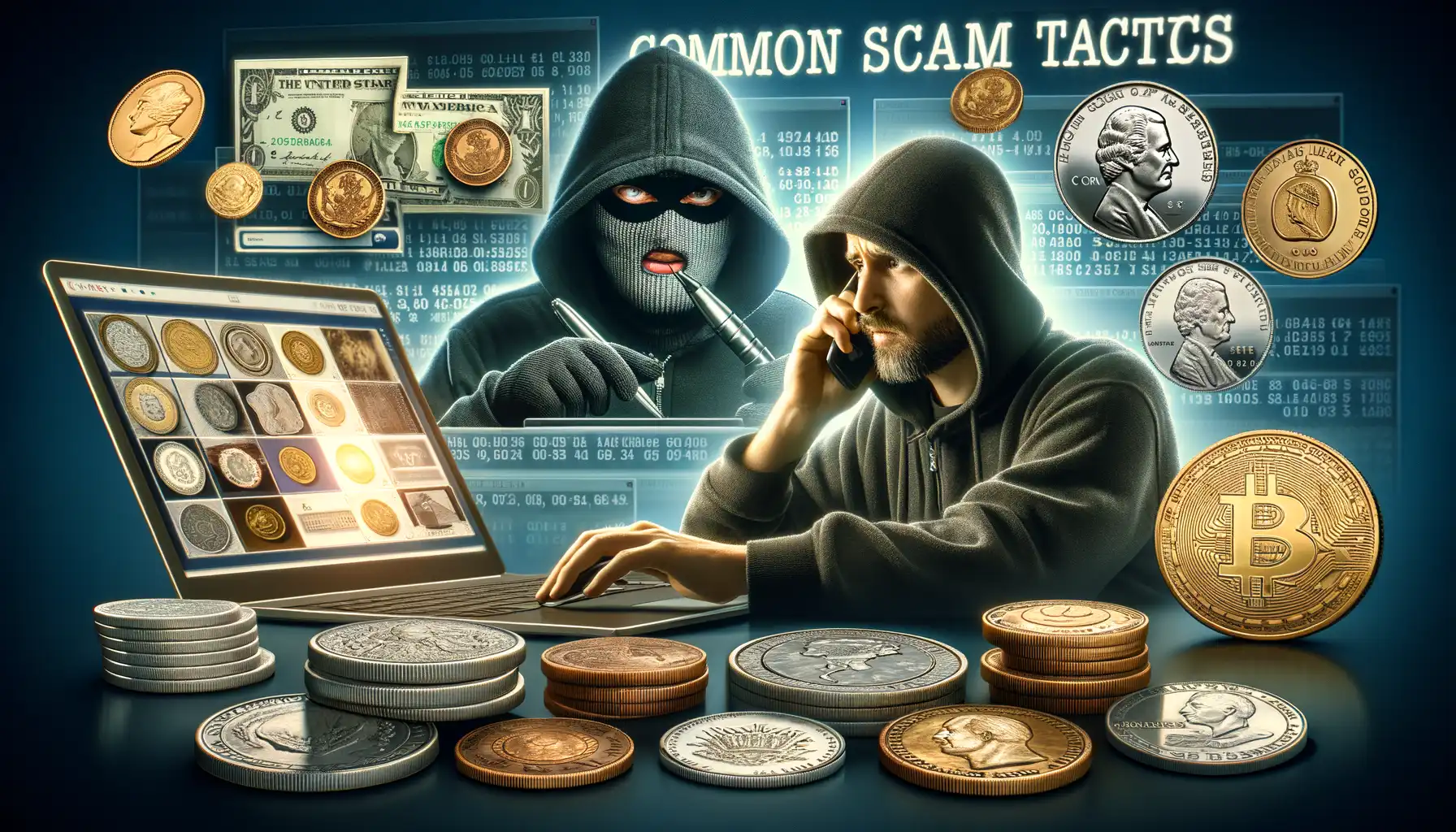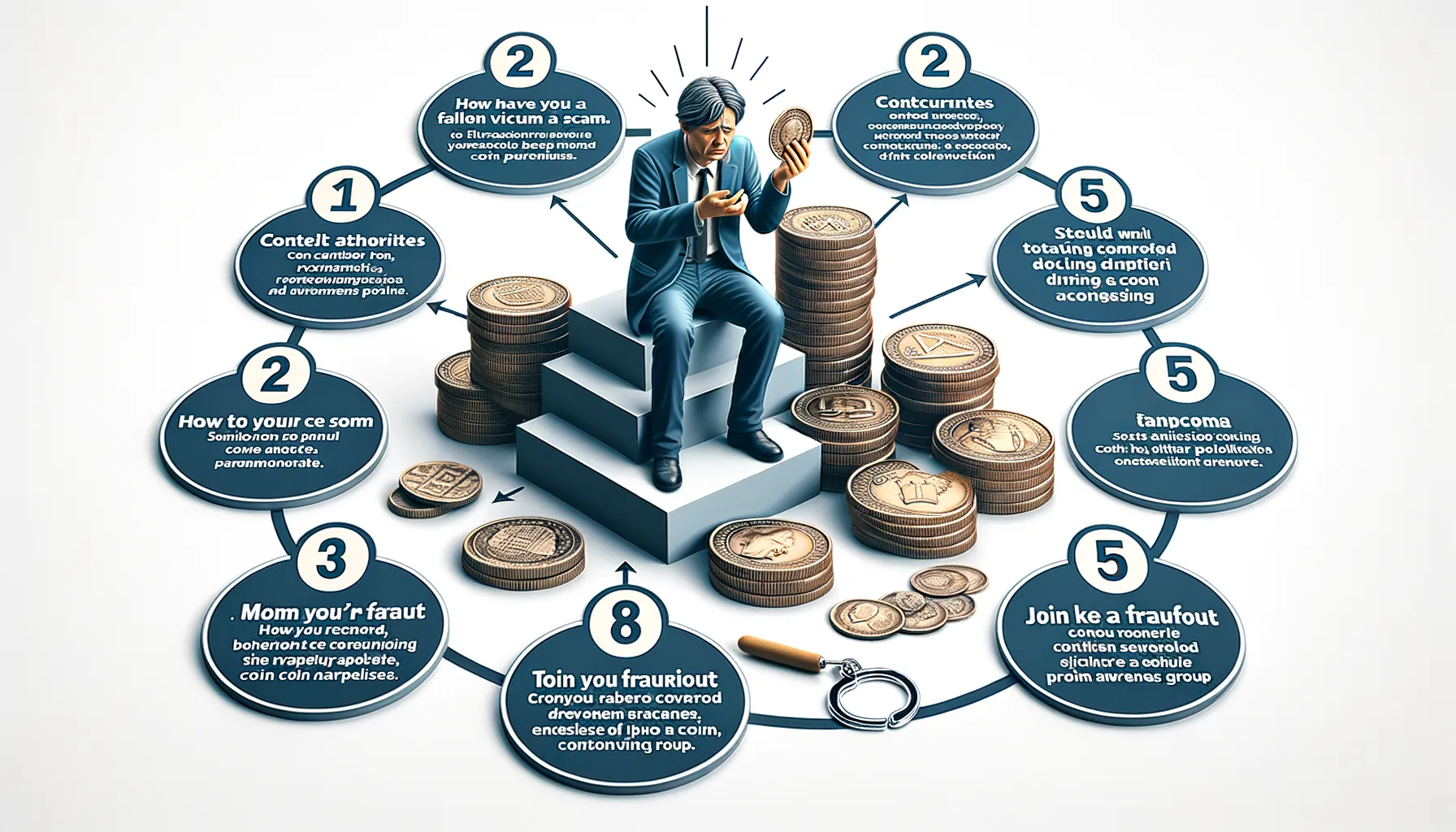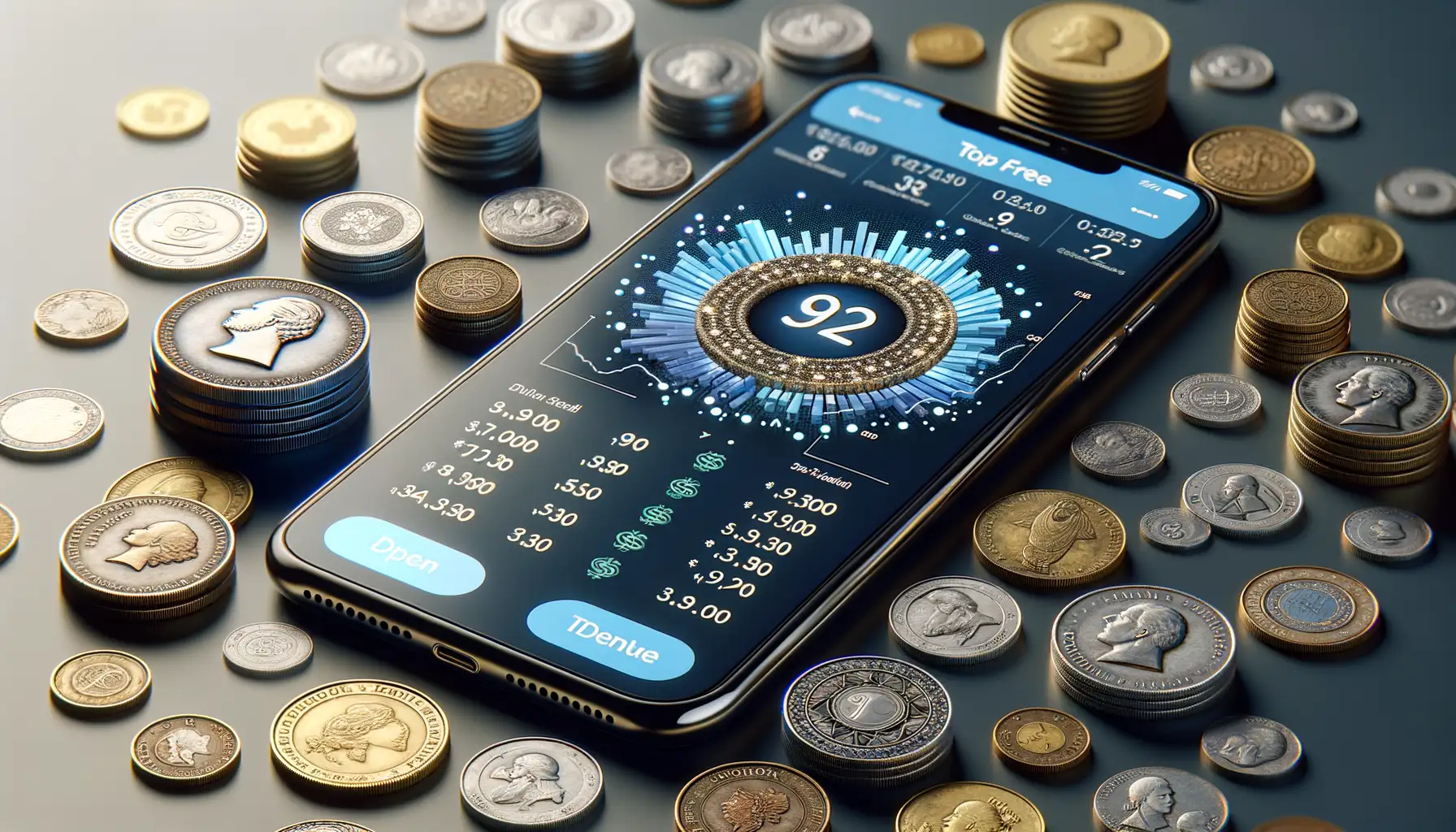Understanding Phishing Scams and Their Impact on Coin Collectors
How Phishing Schemes Prey on Coin Collectors’ Passion
Imagine this: you’ve just spotted what looks like the perfect addition to your coin collection—a rare silver denarius, priced too good to pass up. The seller seems legitimate, their message polite and well-researched. But behind that email or cleverly designed website could be a lurking trap: a phishing scam, custom-built to exploit your enthusiasm for numismatics.
Why are coin collectors often targets? Simple. Collecting isn’t just a hobby—it’s personal, often deeply emotional. Scammers know collectors treasure not just the coins themselves but the stories they represent. These criminals use that passion as bait, crafting scams that feel authentic enough to make you let your guard down.
Phishing scams aren’t just financial attacks; they can feel like a betrayal of trust, leaving collectors heartbroken and even hesitant to engage with online communities. Sadly, these schemes have led to stolen collections, identity theft, and months—sometimes years—of stress.
- Fake emails mimicking dealers or auction houses
- “Exclusive” deals requiring urgent payments
- Counterfeit websites stealing your login credentials
Stay alert, because protecting your collection starts with understanding the scams targeting it.
Common Tactics Used by Scammers to Target Coin Enthusiasts

Tricks Scammers Use to Steal Your Hobby’s Treasure
Coin collecting is a passion—a blend of history, art, and treasure hunting. Unfortunately, scammers see it as a goldmine too, and they’ve got plenty of tricks up their sleeves to lure enthusiasts into their traps. It starts small—an email that looks harmless or a message that seems like it’s from your favorite coin dealer. But don’t be fooled; beneath the surface, there’s deception swirling.
Here’s how they reel you in:
- Fake Auctions: Imagine spotting a rare gold coin at a jaw-dropping price in an online auction. You’re excited, right? But it’s a scammer pulling strings, vanishing with your payment once you bid.
- Replica Websites: These are near-perfect copies of legitimate dealer sites, where scammers prey on your trust. The slightest detail in the URL could give them away, but they’re betting you won’t notice.
- Phishing Emails: “Urgent account confirmation required!” or “Special deal, don’t miss out!” These emails come with malicious links that compromise your accounts faster than a pickpocket in a crowd.
Sweet Promises & Too-Good-To-Be-True Deals
Scammers often bait you with deals so irresistible, they’d make even the most seasoned collector pause. For example, they’ll send you a glossy ad promoting a rare 1907 Saint-Gaudens Double Eagle at a fraction of its market value. Sounds incredible, right? Except it’s too good to be true. These offers rely on your excitement clouding your skepticism.
Another common ploy? Emotional manipulation. They might spin stories about “a family heirloom needing a good home” or pretend they’re collectors who “need fast cash to handle urgent medical bills.” It pulls at your heartstrings while loosening your grip on caution. One moment you’re helping what you think is a fellow enthusiast, and the next, you’re left staring at a worthless counterfeit—or worse, nothing at all.
Stay sharp, friend. Scammers prey on your enthusiasm and love for coins, but with a keen eye and a healthy dose of skepticism, you’ll keep your collection safe from their schemes.
Tips for Identifying and Avoiding Phishing Attempts

Spotting the Red Flags of a Phishing Attempt
Picture this: you’re sipping your morning coffee, scrolling through your emails, and there it is—a message that seems to be from your favorite coin marketplace. “Urgent: Verify Your Collection to Avoid Suspension!” It’s tempting to click, but hold on! That’s exactly how phishing attacks trick even the savviest collectors.
Scammers thrive on urgency and fear. They often send emails, messages, or pop-ups that mimic trusted sites or individuals. What should you look for?
- Suspicious URLs: Hover over any links—does the web address look odd or slightly misspelled (e.g., cøinmarketplace.com)? If so, steer clear.
- Generic Greetings: A legitimate contact knows your name! “Dear Valued Customer” screams sketchy.
- Unexpected Attachments: Random files could contain malware, not a catalog of rare coins.
Trust Your Instincts (and Double-Check Everything)
One of the sneakiest tricks in a scammer’s playbook is impersonation. Perhaps they claim to be a fellow collector eager to trade. Before responding, reach out via another platform or verified contact details to confirm their identity.
And let’s not underestimate the power of a gut-check. If something feels off—maybe the tone of a message sounds too pushy or the design is full of grammatical errors—it probably is. Scammers prey on haste. Slowing down can save both your collection and your peace of mind!
Steps to Take if You’ve Been a Victim of a Coin-Related Scam

Take a Breath: Regaining Control After Being Scammed
First things first—pause and take a deep breath. Falling victim to a coin-related scam can feel like a punch in the gut, but you’re not alone. Even seasoned collectors can get tricked by sophisticated scams. The good news? There are steps you can take right now to regain control and protect yourself moving forward.
- Immediately secure your accounts: Change the passwords of any accounts related to your collection or finances. Go for strong, unique combinations that mix letters, numbers, and special characters—make them hacker-proof! If possible, enable two-factor authentication.
- Report the scam: File a report with your local law enforcement and, if applicable, the website or platform where the transaction occurred. Fraud teams often have procedures in place to assist victims.
- Contact your bank: If money was stolen or fraudulent transactions occurred, reach out to your bank or payment processor immediately. They may help recover lost funds.
Track Your Digital Footsteps
Retrace your online activity like a detective following a trail. Did you recently click on a suspicious link? Share personal details via email? Scammers exploit human curiosity and urgency, so identifying how they accessed your data gives you valuable insight.
Consider using tools such as antivirus software to scan your devices for malware or spyware. If the scam involved your cryptocurrency wallet, transfer remaining funds to a secure wallet ASAP. Every second counts when dealing with cybercriminals!
Best Practices to Protect Your Digital Assets and Collections

Build a Solid Fortress Around Your Digital Vault
Imagine your digital assets as rare and priceless treasures hidden in a vault. Would you leave the door wide open? Of course not! It’s time to build that digital fortress with smart strategies that fend off even the craftiest cyber pirates.
First things first, safeguard your accounts with strong, unique passwords. Think of these as the impenetrable gates to your collection. A password like “12345” is like leaving the key under the mat—don’t do it! Instead, opt for something unpredictable. (A mix of letters, numbers, and symbols always does the trick.) Even better, enable two-factor authentication (2FA). It’s like adding a second lock to your vault—double the protection.
- Use secure platforms to store sensitive information, such as digital wallets or online portfolios. Research is your ally here. Look for platforms that prioritize encryption and data privacy.
- Update your software religiously. Scammers love exploiting outdated systems, so hit that update button like your collection depends on it—because it does.
Stay Vigilant in the Wild West of the Internet
The digital landscape can feel like the Wild West, where danger lurks behind unassuming links and emails. To protect yourself, approach every unsolicited communication with caution, especially if it mentions your coin collection or anything of monetary value.
Picture this: a glossy email arrives claiming you’ve won a rare proof set. Sounds exciting, right? But stop! Examine the sender’s email address like a detective hunting for clues. Is it suspiciously long or slightly off? And don’t ever click on links without verifying their legitimacy—it’s like walking into a dark alley without a flashlight.
Invest in a reliable antivirus program, too. Think of it as the shield blocking malware from sneaking into your system. These programs scan for suspicious activity, ensuring your prized collections remain untouchable.
Ultimately, treat every interaction online with a healthy dose of skepticism. Trust is earned—and online, it’s best given sparingly.


